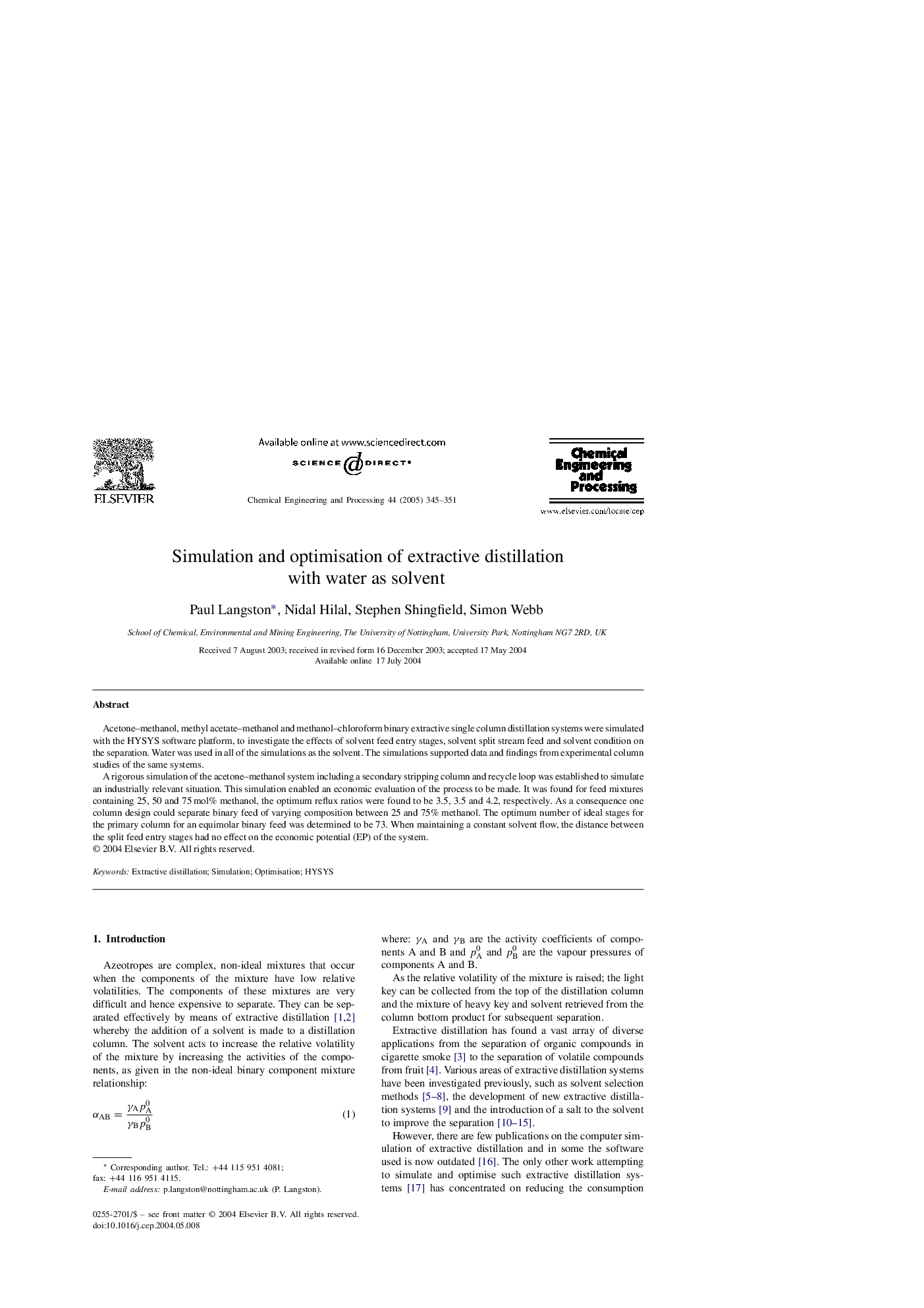| Article ID | Journal | Published Year | Pages | File Type |
|---|---|---|---|---|
| 10396957 | Chemical Engineering and Processing: Process Intensification | 2005 | 7 Pages |
Abstract
A rigorous simulation of the acetone-methanol system including a secondary stripping column and recycle loop was established to simulate an industrially relevant situation. This simulation enabled an economic evaluation of the process to be made. It was found for feed mixtures containing 25, 50 and 75Â mol% methanol, the optimum reflux ratios were found to be 3.5, 3.5 and 4.2, respectively. As a consequence one column design could separate binary feed of varying composition between 25 and 75% methanol. The optimum number of ideal stages for the primary column for an equimolar binary feed was determined to be 73. When maintaining a constant solvent flow, the distance between the split feed entry stages had no effect on the economic potential (EP) of the system.
Related Topics
Physical Sciences and Engineering
Chemical Engineering
Process Chemistry and Technology
Authors
Paul Langston, Nidal Hilal, Stephen Shingfield, Simon Webb,
